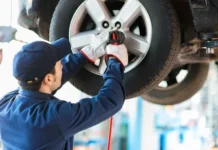Last Updated on August 17, 2024 by Asfa Rasheed
The car wrecking industry plays a role in the sustainability efforts of the global auto industry. Companies involved in car wrecking, also known as auto recyclers or salvage yards, actively contribute to waste reduction and resource conservation by dismantling end-of-life vehicles (ELVs). In this post, we will delve into the role that car wreckers play in promoting sustainability within the sector.
Table of Contents
Reducing Waste through Dismantling and Recycling
Car wreckers in Wellington and other areas have the responsibility of dismantling ELVs to salvage parts and recycle valuable materials. Instead of letting end-of-life vehicles deteriorate in junkyards or be discarded into landfills, salvage yards meticulously disassemble them, identifying and preserving any components that are still in working condition. By salvaging these parts for resale, car wreckers help prolong the lifespan of existing vehicles and reduce the demand for new ones.
Recycling is another aspect of the car wrecking process. Vehicles consist of materials such as metals, plastics, glass and rubber. These materials can be meticulously separated before being sent to industries for repurposing or manufacturing purposes. This recycling process not only saves energy but also conserves resources that would otherwise be required for mining new raw materials.
Promoting Environmental Sustainability
Through the collection of ELVs from across the globe, car wreckers make positive contributions to environmental sustainability.
Reducing the Extraction of Materials
The process of extracting materials for vehicle manufacturing is highly energy-intensive and often causes environmental damage through mining activities. Car wrecking plays a role in addressing this issue by offering consumers recycled parts as a sustainable alternative to help curtail such practices.
Decreasing Greenhouse Gas Emissions
Every year, millions of cars reach the end of their life. By providing a means of recycling these vehicles, car wreckers in Wellington and other areas contribute to reducing associated greenhouse gas emissions that would otherwise occur through incineration or dumping of ELVs. This approach promotes a greener economy by conserving resources.
Preventing Leakage
Vehicles contain fluids, some of which are highly toxic if released into the environment. Responsible car wrecking practices involve draining and disposing of fluids like oil, coolant and transmission fluid to prevent any leakage into water bodies or soil contamination.
Economic Benefits
The impact of the car wrecking industry extends beyond sustainability; it also provides advantages for both businesses and vehicle owners.
Job Creation
Car wreckers generate employment opportunities in sectors such as dismantling, recycling, parts resale and administrative roles. Additionally, these businesses often support industries such as transportation by shipping salvaged materials to manufacturing sites.
Affordable Car Parts
When car wreckers dismantle vehicles, they sell functioning components. This is good news for vehicle owners who are seeking repairs or refurbishments, as they can find good-quality used parts at lower prices.
Generating Revenue
Car wreckers earn revenue by selling scrap metal or recyclable materials obtained from ELVs to manufacturers and industrial establishments. This adds value to their business operations.
The Importance of Responsible Disposal and Handling of Hazardous Materials
Apart from dismantling and recycling, the proper disposal of hazardous materials is another crucial aspect of the car wrecking process. This involves handling substances that are potentially harmful, such as lead acid batteries, mercury-filled light bulbs and airbags equipped with metal devices.
It is crucial to dispose of these materials to prevent contamination and negative health impacts. Car wreckers must follow regulations and guidelines to ensure the management of such materials. They collaborate closely with authorised facilities, specialising in waste management to guarantee their treatment or environmentally friendly disposal.
By prioritising responsible practices in handling materials, car wreckers actively contribute towards sustainability efforts by minimising potential harm to ecosystems and human health.
Conclusion
Car wreckers demonstrate a commitment to promoting sustainability within the industry through their meticulous dismantling processes and efficient recycling methods that reduce waste effectively.
Their actions have an impact on preserving the environment by reducing the extraction of materials, lowering greenhouse gas emissions, and preventing chemical leaks. Moreover, in addition to the advantages they offer, these companies also create job opportunities and provide affordable vehicle parts for car owners.
Considering these benefits for both businesses and society as a whole, it is clear that car wreckers play a role in promoting a more sustainable future for the automotive industry.
If you’re interested in finding out more about panel beating services visit NRC Group.
















